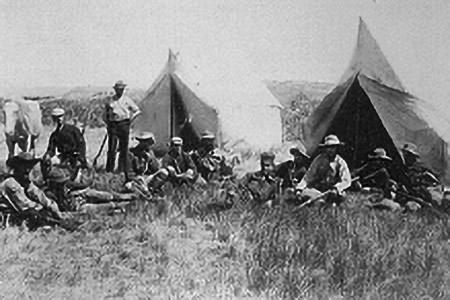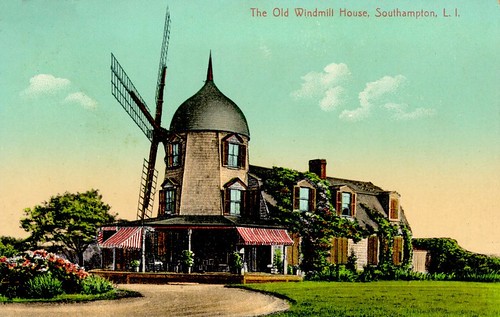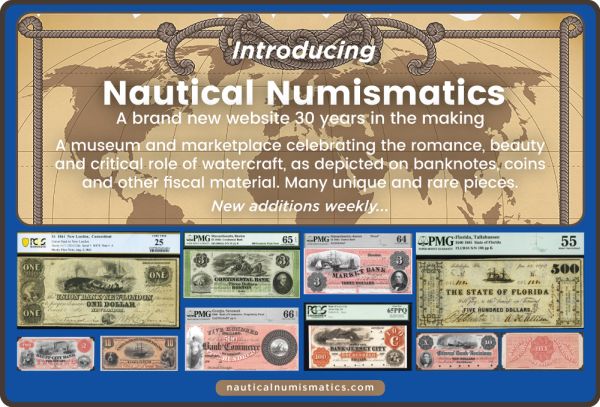
PREV ARTICLE
NEXT ARTICLE
FULL ISSUE
PREV FULL ISSUE
CHARLES WYLLYS BETTS – THE LAST 20 YEARSHere's the second of two articles on C. Wyllys Betts by E-Sylum Feature Writer and American Numismatic Biographies author Pete Smith. Thanks! -Editor
Charles Wyllys Betts -The Last Twenty Years
When he graduated from Yale in 1867, Charles Wyllys Betts had no way of knowing that his productive life would be cut short in less than twenty years. His unfinished works were left for others to complete. Such efforts are continuing in 2023. While at Yale, Betts was a member of Skull and Key, a society so secret I can't mention it. After graduating with a B.A. from Yale College, he went on to law school at Columbia in New York, graduating with LL.B. in 1869 and was admitted to the bar. He then did post-graduate study at Yale College until receiving an M.A. in 1871.
During 1870, Betts joined a group of Yale students on an expedition looking for fossils. They
marched across Nebraska with Buffalo Bill as a guide and a party of cavalry as protection from
hostile Indians. Betts reported with Charles joined his older brother Frederick Henry Betts with the firm of Whitney & Betts. In 1875 the brothers formed the firm of F. H. & C. W. Betts. In 1878 this became Betts, Atterbury & Betts. For most of his adult life, Charles lived with his brother and Frederick's wife Louise at 78 Irving Place near Gramercy Park in New York City. Although he lived frugally with his brother, they each needed a summer cottage to get away from the city. They purchased land on Good Ground for a summer colony in Southampton, New York. Then needing a little extra space, Charles bought a windmill and had it moved to attach to his cottage. The windmill was originally built in 1807 on Shelter Island. It was moved to the Good Ground neighborhood in the 1860's and later to the Betts property on Gin Lane in 1880. The machinery was removed and windows installed. The cottage was then built next to the windmill. Charles travelled to England to buy old English furniture to furnish his cottage. Eventually he had enough to furnish six cottages in the area. The Betts brothers, with three others, also bought a U. S. Life Saving Service station, built in 1851 between Agawan Lake and the Atlantic Ocean. This was expanded and converted into the Saint Andrews Dune Church which is still standing and operating during sixteen weeks each summer. Contrary to what appears in some biographies, Charles never married. This was the subject of a ten-page article by Christopher McDowell published January 5, 2021. This was funded by a Newman Grant and published on the Newman Numismatic Portal. Betts was active in New York society and was a member of The University Club, Union Club, Century Club, Country Club, Knickerbocker Club and Riding Club. He was a regular member of the Trinity Church Choir. After time away from the hobby, Betts began collecting again. He purchased his first American medal in 1879. He joined the ANS and was a generous worker and donor. He presented papers on counterfeit halfpence and the Admiral Vernon medals. In a few years, Betts assembled a large collection of American Colonial medals, probably the largest at the time. It was his goal to write a reference book on the topic. His scope included all of the western hemisphere and well beyond what would become the original thirteen American states. In 1886 he went to Europe to do research at the British Museum and at the Paris Mint to gather material for his book. Betts contracted pneumonia and died at his home on Irving Place in New York City on April 27, 1887. He is buried in Woodlawn Cemetery in the Bronx in the family plot with his parents and brother. He gave 1100 items including his collection of American medals to Yale college, doubling the size of their collection. His hand carved dies were donated to the American Numismatic Society. Betts compiled a family genealogy, Thomas Betts and his Descendants, that was unfinished at the time of his death. It was completed by Frederick. His work on American Colonial Medals also remained unfinished. The project was taken on by his brother with assistance from dealer Lyman H. Low and publisher and editor of the American Journal of Numismatics, William T. R. Marvin. The book was completed and published in 1894. The book was well respected and the standard reference on the topic. The series of medals covered are now known as Betts Medals. As good as it was, there were problems with the book. Some medals that might have qualified were omitted and some medals described are not confirmed to exist. Christopher McDowell took on the huge task of revising and updating the series. The first of three planned volumes, The Early Betts Medal Companion: Medals of America's Discovery and Colonization (1492-1737) was published by the American Numismatic Society in 2022. Work on later medals continues. At one time I thought the Good Grounds windmill house was bought in 2017 by Robert Downey Jr, and his wife Susan. Downey actually bought a different Long Island house with a mock windmill. There were a lot of windmills on Long Island and they can be confusing. Smarty-Pants question of the week: Who was Charles McCormick Reeve mentioned earlier?
To read the earlier E-Sylum article, see:
Wayne Homren, Editor The Numismatic Bibliomania Society is a non-profit organization promoting numismatic literature. See our web site at coinbooks.org. To submit items for publication in The E-Sylum, write to the Editor at this address: whomren@gmail.com To subscribe go to: https://my.binhost.com/lists/listinfo/esylum All Rights Reserved. NBS Home Page Contact the NBS webmaster 
|


